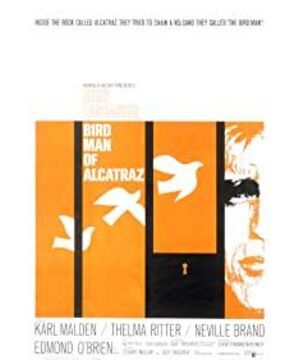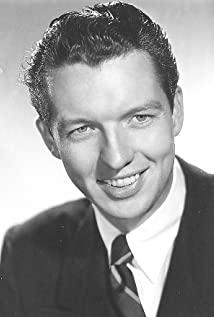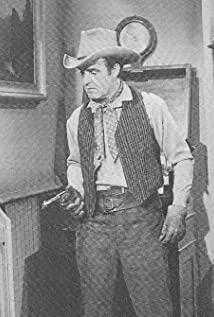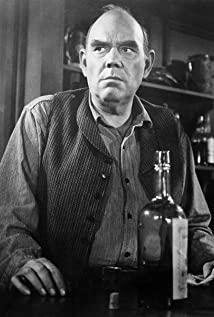The unattractive mystery of the prison itself has spawned a series of films about prison life: from Jacques Baker's "The Hole" to "The Shawshank Redemption", from Jarmusch's "Outlaw" to Cohen The brothers' "Three Kings Escape from Prison", Kezhu combined into a series of "prison films" with distinctive genre characteristics. The usual formula of prison films is to see prison as the mortal enemy of freedom, and escape is given some kind of legitimacy, and the fugitive also gains a sympathetic perspective. But The Birdman of Alcatelz is a rare in-depth exploration of the tension between imprisonment and freedom.
The story is based on real events. Stroud, a murderer with severe antisocial personality disorder and a minor Oedipus complex, has been sentenced to life in prison for saving and healing a wounded sparrow one day. Birdsong awakened his talent, and from then on, Stroud became an authority on bird research, and achieved achievements beyond the reach of outside experts. He was redeemed in his dealings with birds.
Incarceration deprives prisoners of their autonomy over time, replacing them with strict discipline and careful work and rest schedules, and "educational reforms" of prisoners through forced labor. In fact, regardless of reform through labor, isolation itself is already an extremely cruel punishment. Inside the prison is an almost stagnant time and space, while the outside is a rapidly changing society, which makes prisoners lose not the ability to re-offend, but more often the ability to live again. Just like the old Brooklyn librarian in "The Shawshank Redemption", the freedom beyond the high walls has long passed its fresh-keeping period, and he finally did not live the first night after being released from prison. Reid, who was in charge of the storm in Sharkcastle, also lamented that he was "institutionalized", so that after his release, he could not urinate without first reporting to the toilet.
Therefore, Foucault believes that prisons have never been able to transform wicked criminals into good law-abiding citizens, and that prisons have not "considered prisoners as people in society. This is to create an unnatural, useless, Dangerous state of existence". Thus, the longer prisoners stay in prison, the less they can be reformed and the more they can commit crimes. Prisons have become a link in the operating chain of the social political and economic order: the more criminals there are, the more crimes there are; the more crimes there are, the more panic the residents are; the more panic the residents are, the more dependent the prison system is.
At the end of The Birdman of Alcatraz, Stroud also hits the heart of the prison system: "Rehabilitation? Do you know what the word means? The unabridged Webster's International Dictionary says the word comes from Latin roots. Habilis, which means 'to restore one's dignity'. Have you considered that part of your job is to give a person the dignity he once had? Your only interest is how he behaves. You told me once a long time ago , I never forgot: 'You should behave as we want.' For thirty-five years, you didn't back down an inch from your position, you wanted your prisoners to dance outside the door like marionettes, all of that. Follow your mandated values, your requirements for obedience, your norms of behavior, and even your sense of morality. Harvey, that's why you failed, you and your entire science of prison management failed, Because you stole from prisoners the most important thing in their lives - their personalities. They go out and get lost, like robots, step by step, but have a deep, deep sense of what you've imposed on them Hate, once they have a chance to take revenge on society, they will not let it go. The result? Half of them go back to prison..."
The film unbiasedly presents the indifference of Stroud to his fellow inmates, and even kills a prison guard, but we can finally identify with him, which shows that we accept his transformation. However, due to Stroud's consistent position, this transformation cannot be said to be the credit of the prison system. Authorities always expect to see prisoners turn into walking dead, and cannot accept that individuals deprived of their liberty can still live in prisons A life of complete self-sufficiency, otherwise what is there to talk about repentance? In "Miryang", Shin Ae tries to numb her loss of a child through religion. She finally made up her mind to go to prison to "forgive" the prisoner who killed her son, only to discover that the murderer had been redeemed in advance by the Lord's holy love, and Shin Ae collapsed. Here, how did the imprisoned Stroud reconcile with freedom?
According to Foucault's statement in "Subject and Power", the state sanctioning crime as a "mode of action" against a specific group of people is a kind of "power", and the object of this power is the subject who has freedom. Liberty is not liberty as a natural political right—which of course is deprived of it by imprisonment—but is inherent in the individual, and power depends on liberty’s disobedience to take effect. Conversely, if power forces liberty to turn to “voluntary servitude,” then Power will also cease to be power, and turn into outright violence, and the punisher will lose its own legitimacy.
There should be a minimum, sacrosanct realm of individual liberty, and a boundary must be drawn between the realm of private life and the realm of public authority. "Some aspects of human existence must remain independent of social control. No matter how small the reservation may be, any invasion of it would be tyranny." Liberals "believe in social harmony, progress, and the preservation of the state or any It is compatible with a large area of private life that no authority can enter.
Therefore, it is unjust for the authority to use various disciplines to transform the individual's thinking (more often, it is soothing and silent). Puyi in "The Last Emperor" was forced to transform into a self-sufficient "new citizen", and the "recovered" Alis in "A Clockwork Orange" would vomit and diarrhoea once he had the idea of doing evil. These practices undoubtedly violated Kant's principle of autonomy: As autonomous beings, everyone has the right to decide who they want to be. If someone commits a crime, we do have the right to "revenge" him for the crime with punishment, but we do not have the right to manipulate his personality to violate his personal integrity. Otherwise, the last territory of personal freedom will be lost.
The emergence of the little canary symbolizes Stroud's rebirth, and the bird symbolizes freedom. Stroud entrusted the nature of freedom to the bird, and since then he has been able to live peacefully in the iron wall. We can imagine that Sisyphus, at one point or another, finally discovered the meaning of life in monotonous boulders.
But another question raised vigilance. Could this kind of peace of mind and even detachment be the atrophy of the mind caused by the cramped environment? The adaptive preference formed makes people willing to give up the struggle? This is of course unpredictable. But I believe that Stroud was not, not only because of his amazing achievements, but also because he never recognized himself as a prisoner in the traditional sense.
Spiritual cultivation can certainly alleviate the psychological trauma caused by the lack of external rights. But this filling does not replace the gap. Political rights, as Arendt argues, must be realized in action in the public sphere, and collective action is necessary, otherwise there will be a slide: will be more reckless deprivation, until you have nothing.
View more about Birdman of Alcatraz reviews











